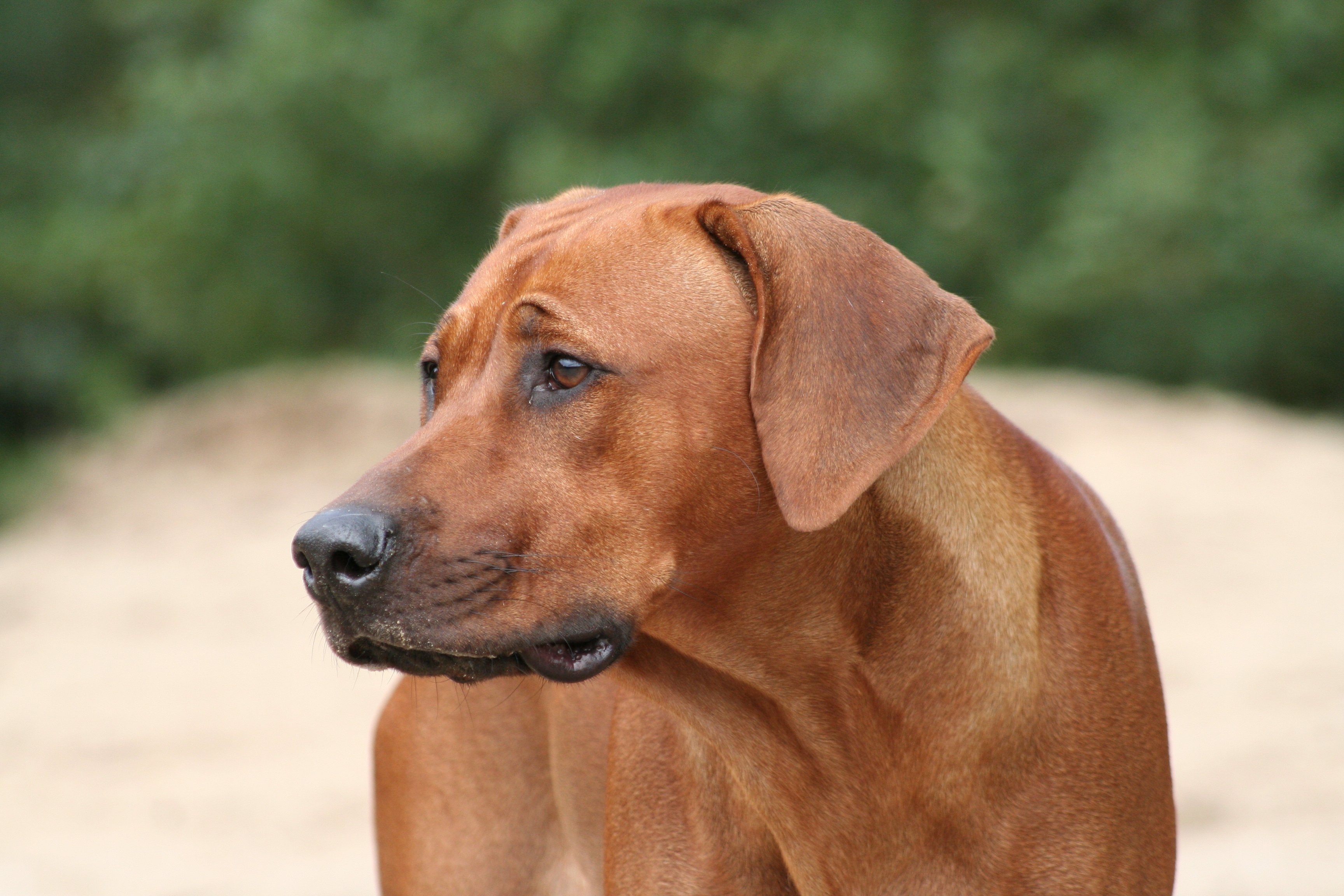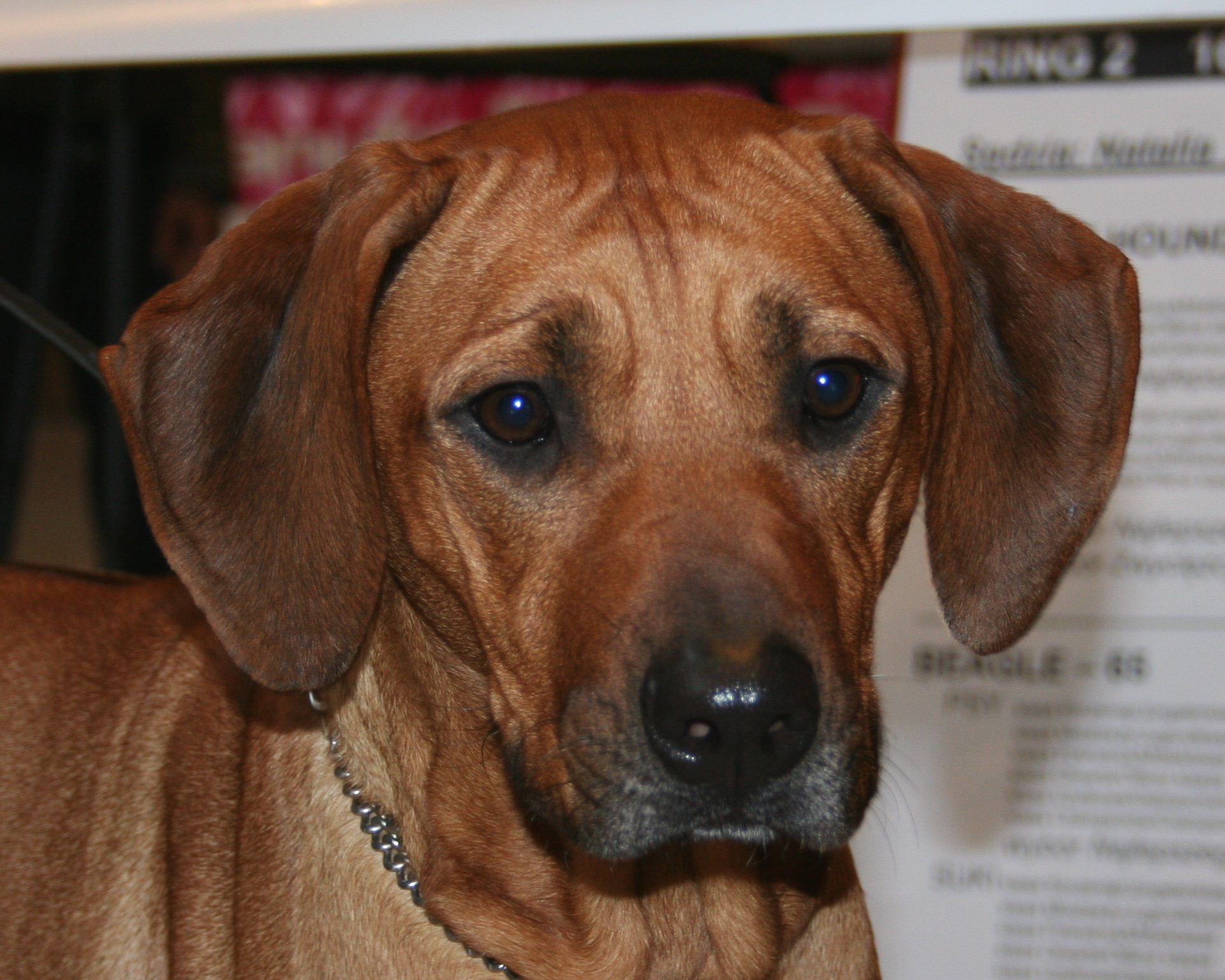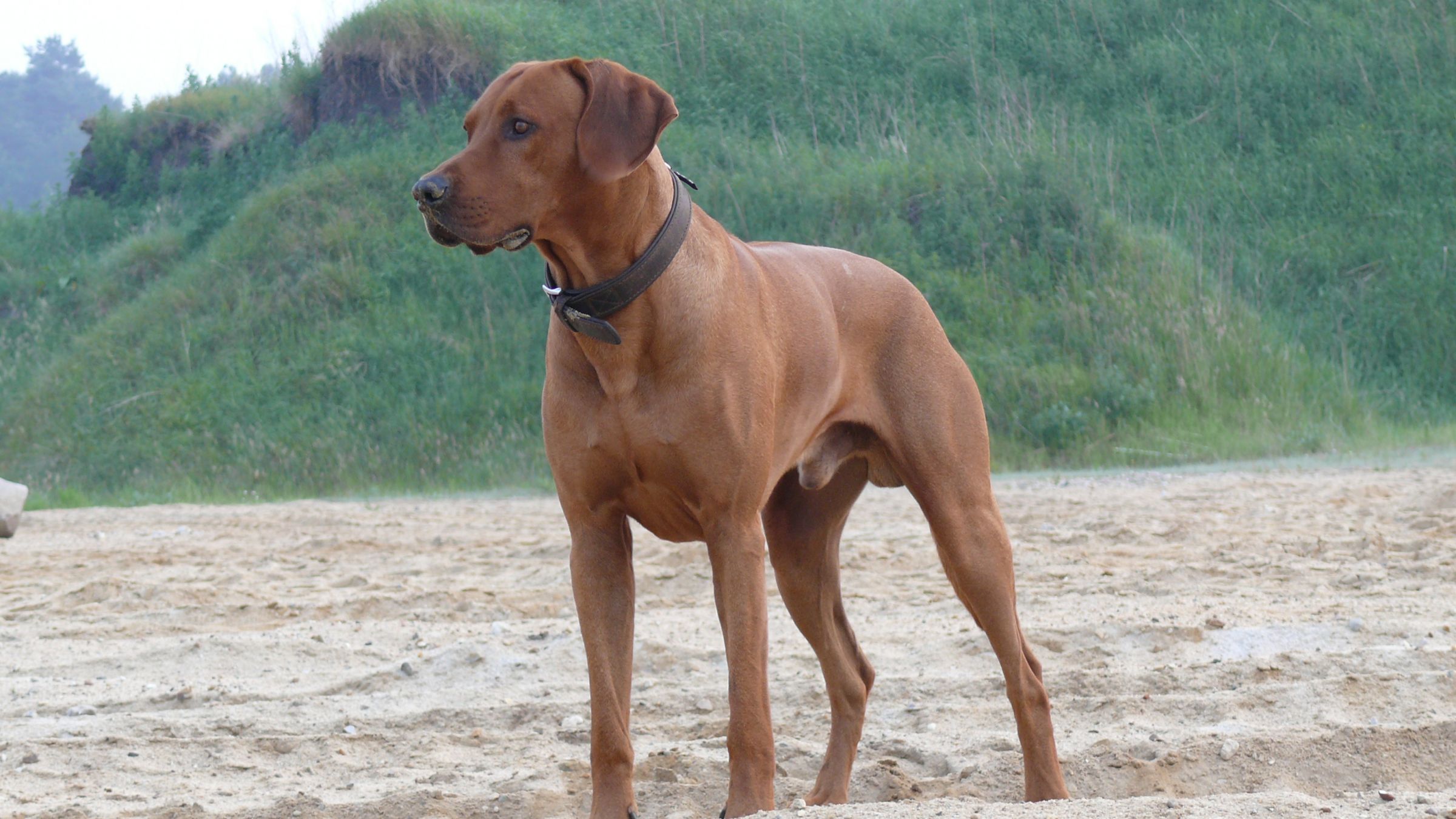All About The Ridgeback Dog: An Ultimate Guide
Hey there, dog lovers! If you're reading this, chances are you've heard about the incredible Ridgeback dog. This breed is not just any ordinary dog—it's a loyal companion, a fierce protector, and a true gem in the world of canines. Whether you're considering adopting one or simply curious about what makes Ridgeback dogs so special, you're in the right place. In this ultimate guide, we'll dive deep into everything you need to know about this remarkable breed!
The Ridgeback dog has been stealing hearts for generations. From its distinctive coat to its unmatched loyalty, this breed is truly one of a kind. But before you rush out to welcome a Ridgeback into your life, there's a lot to learn. This guide will cover everything from their history and temperament to their care needs and training tips. So grab a cup of coffee, sit back, and let's explore the world of Ridgeback dogs together!
Whether you're a seasoned dog owner or a first-timer, understanding the Ridgeback's unique traits and requirements is crucial. This guide is designed to give you all the information you need to make an informed decision about bringing a Ridgeback into your family. Let's get started!
- Unleashing The Power Of Movies 4uhub Your Ultimate Movie Streaming Destination
- Discovering The Power Of Aagmalorg Your Ultimate Guide To Community And Resources
Table of Contents
The Fascinating History of Ridgeback Dogs
Understanding the Temperament of Ridgeback Dogs
- Hd Hub 4 U Movies Download Your Ultimate Guide To Streaming And Downloading Movies
- Ullu Full Hd Movie Your Ultimate Guide To Bingewatching The Hottest Web Series
Health Considerations for Ridgeback Dogs
Training Tips for Ridgeback Dogs
Nutrition and Diet for Ridgeback Dogs
Activity Levels and Exercise Needs
The Fascinating History of Ridgeback Dogs
Ridgeback dogs have a rich history that dates back to Africa. Originally bred in Southern Africa by the Khoikhoi people, these dogs were known for their incredible hunting skills. The distinctive ridge on their back, which gives them their name, is a unique trait that sets them apart from other breeds. This ridge is a result of a genetic mutation that has fascinated breeders and scientists alike.
During the colonial era, European settlers in Africa began breeding Ridgebacks with other dogs to enhance their hunting abilities. The result was a breed that was not only skilled at hunting but also loyal and protective of its human family. Today, Ridgeback dogs are celebrated for their versatility and are popular both as family pets and working dogs.
Where Did the Ridgeback Originate?
The Ridgeback originated in Southern Africa, where it was used by the Khoikhoi people to hunt lions. Yes, you read that right—lions! These dogs were fearless and agile, making them perfect for such a dangerous task. Over time, they became an essential part of African hunting culture, and their reputation spread far and wide.
Ridgeback Dog Breed Standard
When it comes to Ridgeback dogs, there's a specific breed standard that defines their appearance and characteristics. The American Kennel Club (AKC) recognizes the Ridgeback as a medium to large-sized breed with a short, dense coat. Their most distinctive feature, of course, is the ridge on their back, which runs from the shoulders to the hips.
Key Characteristics:
- Height: Males typically stand between 25-27 inches, while females are slightly smaller at 24-26 inches.
- Weight: Males weigh around 70-85 pounds, while females weigh between 60-70 pounds.
- Coat: Short and dense, with colors ranging from light wheaten to red wheaten.
- Temperament: Loyal, intelligent, and protective.
What Makes the Ridgeback Unique?
The ridge on their back is what truly sets Ridgeback dogs apart from other breeds. This unique feature is caused by a mutation in the DNA and is a defining characteristic of the breed. In addition to their striking appearance, Ridgebacks are known for their intelligence and independence, making them a fascinating breed to own.
Understanding the Temperament of Ridgeback Dogs
When you think of Ridgeback dogs, one word comes to mind: loyalty. These dogs are fiercely loyal to their families and form strong bonds with their human companions. They are also known for their independent nature, which can make them a bit stubborn at times. However, with the right training and socialization, Ridgebacks can become well-behaved and obedient pets.
Key Traits:
- Loyal: Ridgebacks are known for their unwavering loyalty to their families.
- Protective: They have a natural instinct to protect their loved ones, making them excellent guard dogs.
- Intelligent: Ridgebacks are quick learners and can excel in various tasks with proper training.
Are Ridgebacks Good with Kids?
Absolutely! Ridgeback dogs are great with kids when they are properly socialized from a young age. They are patient and gentle with children, making them an ideal family pet. However, it's important to supervise interactions between dogs and young children to ensure everyone stays safe.
Health Considerations for Ridgeback Dogs
Like all breeds, Ridgeback dogs are prone to certain health issues. It's important to be aware of these potential problems so you can take steps to prevent or manage them. Some common health concerns in Ridgebacks include hip dysplasia, dermatomyositis, and thyroid issues.
Top Health Tips:
- Regular Vet Check-Ups: Schedule routine visits to the vet to monitor your dog's health.
- Proper Nutrition: Feed your Ridgeback a high-quality diet to support their overall health.
- Exercise: Ensure your dog gets plenty of physical activity to maintain a healthy weight.
How to Keep Your Ridgeback Healthy?
Preventive care is key to keeping your Ridgeback healthy. Regular exercise, a balanced diet, and routine vet visits are essential. Additionally, pay attention to any changes in your dog's behavior or physical condition, as these could be signs of an underlying health issue.
Caring for Your Ridgeback Dog
Taking care of a Ridgeback dog requires dedication and commitment. From grooming to exercise, there are several aspects of care that you need to consider. Ridgebacks are relatively low-maintenance when it comes to grooming, but they do require regular exercise to stay healthy and happy.
Key Care Tips:
- Grooming: Brush your Ridgeback's coat weekly to keep it shiny and healthy.
- Exercise: Provide at least an hour of exercise daily to meet their activity needs.
- Socialization: Expose your Ridgeback to different people, animals, and environments to help them become well-rounded dogs.
What Do Ridgebacks Need in Their Daily Routine?
Ridgebacks thrive on routine. A typical day for a Ridgeback should include plenty of exercise, mental stimulation, and quality time with their family. Whether it's a morning walk, a game of fetch, or simply lounging on the couch, Ridgebacks love spending time with their humans.
Training Tips for Ridgeback Dogs
Training a Ridgeback dog can be both rewarding and challenging. These intelligent dogs are quick learners, but their independent nature can make them a bit stubborn at times. Consistency and positive reinforcement are key to successful training.
Effective Training Strategies:
- Start Early: Begin training as soon as you bring your Ridgeback home.
- Use Positive Reinforcement: Reward good behavior with treats, praise, or toys.
- Be Consistent: Stick to a routine and use the same commands every time.
Can Ridgebacks Be Trained for Specific Tasks?
Absolutely! Ridgebacks are versatile dogs that can excel in various tasks, from obedience training to agility courses. With the right training and motivation, they can become skilled at just about anything you put their minds to.
Nutrition and Diet for Ridgeback Dogs
Proper nutrition is essential for maintaining your Ridgeback's health and well-being. These dogs require a balanced diet that meets their specific nutritional needs. High-quality commercial dog food or a homemade diet approved by a veterinarian can provide the nutrients your Ridgeback needs to thrive.
Key Nutritional Needs:
- Protein: Ridgebacks need a diet rich in high-quality protein to support muscle development.
- Carbohydrates: Provide complex carbs for sustained energy.
- Fat: Include healthy fats to support skin and coat health.
What Should Ridgebacks Eat?
Ridgebacks should eat a diet that is rich in protein, moderate in fat, and low in carbohydrates. Avoid feeding them table scraps or foods that are harmful to dogs, such as chocolate, onions, and grapes. Always consult with your vet before making any significant changes to your dog's diet.
Activity Levels and Exercise Needs
Ridgeback dogs are an active breed that requires plenty of exercise to stay healthy and happy. Without enough physical activity, they can become bored and develop destructive behaviors. Daily walks, playtime, and mental stimulation are all essential components of a Ridgeback's exercise routine.
Exercise Tips:
- Walks: Take your Ridgeback for at least one hour of walking each day.
- Playtime: Engage in interactive games like fetch or tug-of-war.
- Mental Stimulation: Provide puzzle toys or training sessions to keep their minds sharp.
How Much Exercise Do Ridgebacks Need?
Ridgebacks need at least one hour of exercise per day, but more is always better. They thrive on physical activity and mental stimulation, so don't be afraid to challenge them with new activities and games.
Grooming Your Ridgeback Dog
Grooming a Ridgeback dog is relatively simple compared to some other breeds. Their short, dense coat requires minimal maintenance, but regular grooming is still important to keep them looking their best. Brushing their coat weekly and bathing them occasionally will help keep their skin and coat healthy.
Grooming Tips:
- Brushing: Use a soft-bristle brush or grooming mitt to remove loose hair.
- Bathing: Bathe your Ridgeback every 2-3 months or as needed.
- Nail Care: Trim their nails regularly to prevent overgrowth.
Do Ridgebacks Shed a Lot?
Ridgebacks are considered moderate shedders. While they don't shed as much as some breeds, they do shed enough to require regular grooming. Brushing their coat weekly will help minimize shedding and keep their coat looking shiny and healthy.
Adopting a Ridgeback Dog
If you're considering adopting a Ridgeback dog, there are a few things you should keep in mind. First, make sure you're ready for the commitment that comes with owning a dog. Ridgebacks require time, attention, and resources to thrive. Research reputable breeders or rescue organizations to find a healthy and well-socialized Ridgeback.
Adoption Tips:
- Research Breeders: Look for reputable breeders who prioritize the health and well-being of their dogs.
- Rescue Options: Consider adopting from a Ridgeback rescue organization to give a dog in need a loving home.
- Prepare Your Home: Make sure your home is dog-proofed and ready for your new furry friend.
What to Expect When Adopting a Ridgeback?
Adopting a Ridgeback can be a life-changing experience for both you and your new pet. These dogs are loyal, intelligent, and full of personality. With the right care and training, they can become cherished members of your family for years to come.
Conclusion
So there you have it—an ultimate guide to everything you need to know about Ridgeback dogs. From their fascinating history to their unique characteristics and care needs, Ridgebacks are truly one of a kind. Whether you're considering adopting one or simply want to learn more about this incredible breed, we hope this guide has provided you with valuable insights.
Remember, owning a Ridgeback is a lifelong commitment.
- Junko Furuta Case Story A Dark Chapter In Modern History
- Tamilblasters Movie Download 2024 The Ultimate Guide To Movie Streaming And Downloads

Lovely Rhodesian Ridgeback dog photo and wallpaper. Beautiful Lovely

Rhodesian Ridgeback dog face photo and wallpaper. Beautiful Rhodesian

Rhodesian Ridgeback All Big Dog Breeds